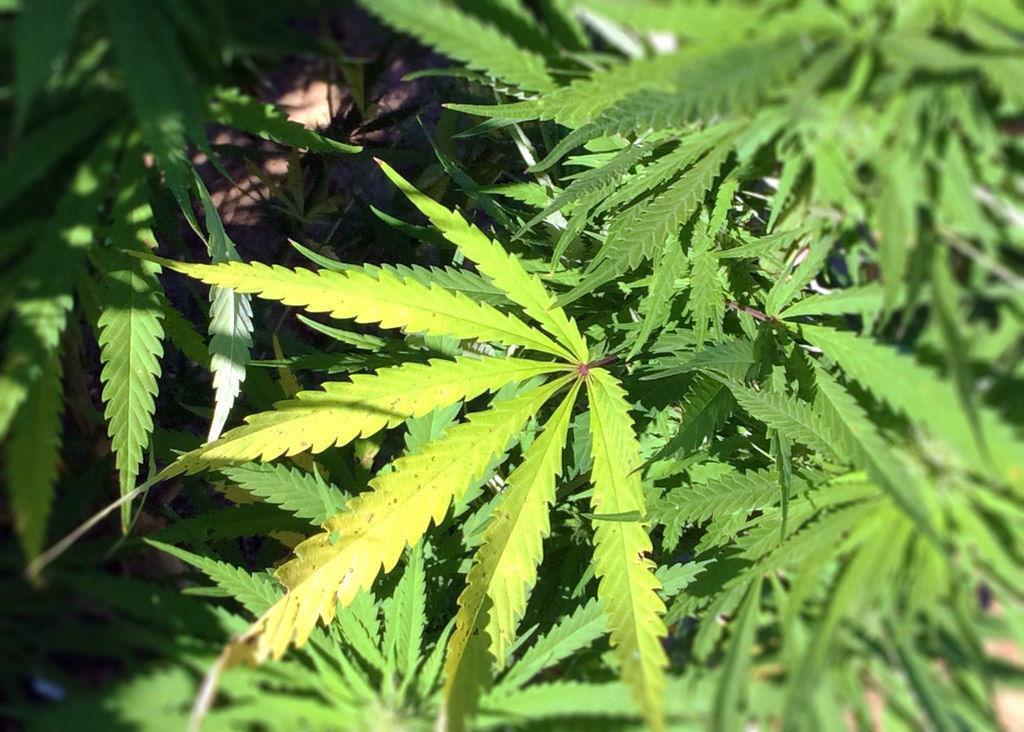Horticulture student Reno Myers said he believes that trying to pursue marijuana growing in a red state like Louisiana is a dead end. But, it might not be that way for much longer.
The LSU Board of Supervisors gave President F. King Alexander the authority to grow medical marijuana under a 3.4 million contract with GB Sciences, a Las Vegas company, in 2016. At this stage in the agreement, GB Sciences is renovating the production facility and anticipates product availability by mid 2018, but specific details are still under wraps.
In 2015, the Louisiana Legislature enacted a law allowing for the cultivation, production and use of medical marijuana, giving the task and licensing rights to the LSU AgCenter and Southern University Agricultural Center. The purpose of the project is to create an “additional revenue source to sustain operations and offset the past eight years of budget reductions as a result of declining revenues to the State,” as stated in the business plan.
Bill Richardson, dean of the Agriculture College, said that GB Sciences Inc., a company selected from among seven candidates, is the best for the job. GB Sciences finished sixth out of 40 candidates in an AgCenter competition for a medical marijuana license and has a new and promising CEO, John Poss.
They planned to have plants growing before the end of 2017, and medication prescribed sometime between January and March of 2018, but they appear to be behind schedule. The LSU AgCenter will require that the facility be located in East Baton Rouge Parish, however, no LSU students will be employed at the indoor growing facility and it won’t be adjacent to campuses, according to The Advocate.
GB Sciences said it expects the center will eventually generate “$10 million in annual sales,” and because of the newly ruled recreational sales of pot in Nevada, success is easily foreseeable for all involved. The Louisiana Department of Agriculture and Forestry, and the Louisiana Board of Pharmacy relative to transportation has established the distribution process and regulations.
“GB Sciences’ most recent quarterly report included a note saying the company has lost $28.1 million since inception and burned through $2.8 million during the first nine months of the fiscal year,” according to The Advocate, which forced the company to file for bankruptcy.
Many discourage investment with GB Sciences, a company that has changed its name and business plan multiple times because of instability and financial history. When speaking with The Advocate, Poss argued that the public filings don’t reflect the true nature of the company’s finances.
GB Sciences will have to attract more money from investors if it does not meet financial requirements. Louisiana law states “any contract for the license awarded pursuant to this subsection shall not exceed five years,” permitting the production by a licensed facility by January 1, 2020.
LSU’s business plan acknowledges that the continuation of this law past the date will require action by the Legislature. If the legislature does not extend the Act, the cannabis program will terminate. The AgCenter estimates it could take four to nine years for revenue to catch up with expenses. Also, LSU may have to repeat the vendor selection process if GB Sciences does not meet set standards.
The plans call to invest up to $6.5 million over the next two years in the expansion of an existing office-and-warehouse building and to set up operations. The five-year contract requires GB Sciences to pay the AgCenter 10 percent of the sales and a minimum of $500,000 a year for research. It’s likely that the AgCenter will benefit from retaining 50 percent of the intellectual property rights gained from research.
The company’s plans also call for “putting $300,000 into a nonprofit each year to educate Louisiana residents and doctors about what medical marijuana is and the combinations of medicines that work for diseases,” according to an article in The Advocate.
The AgCenter will not invest state dollars in the production program above and beyond conducting due diligence on the program. However, state dollars may be invested to expand the AgCenter’s research opportunities. University knowledge gained from the minimally researched plant will benefit the medicinal industry and laws.
State law requires the medicine to be in liquid form, such as oil or spray, capsules or pills, edible dosages, topical applications, transdermal patches or suppositories. GB Sciences has been researching cannabis properties and has filed patents on three different compounds that address aspects of neurological conditions, inflammatory disorders and heart disease, according to an article in The Advocate.
The company has a number of patents for treatments, including heart, Parkinson’s, Alzheimer’s, Crohn’s, and Huntington’s diseases, dementia, arthritis, inflammatory bowel disease and asthma. Nine pharmacies in each parish are permitted under the act in addition to a tenth reserved for future needs.
“[Being arrested for weed] cost me my education. I would be graduating from LSU in May for engineering,” said a former LSU student who was arrested after K-9 units sniffed out paraphernalia in his carpooler’s vehicle. “I lost TOPS because the alternative school I was sent to offered only two classes.”
On the flip side, another student, who has worked in law enforcement for eight years, said that the biggest thing he’s noticed throughout his career is that recreational marijuana users don’t end up behind bars for years and years.
“In fact, most of the people I worked with are not going to arrest someone for minor possession,” he added, unless there was an intent to distribute.
Another student, who chose to remain anonymous, was charged $660 after being found with a “tiny piece of blunt and a gram.” To make matters worse, it was only her third time using cannabis. After going through a pretrial diversion program, the charge was wiped clean from her record.
Offenders, like these students, and those in pursue of medicinal careers said they are frustrated at the progress of the state’s stagnant cannabis laws. But, things are looking up; in March, the East Baton Rouge Metropolitan City Council voted 8-4 to decriminalize marijuana.
Former University student Kyle Craig owns Rhizosphere, LLC., which he opened after moving to Washington. He specializes in horticultural consulting, research and production for the legal cannabis industry. Craig said he thinks marijuana belongs out in the open, growing naturally under the sun, according to an interview conducted by The Leader.
Even though cannabis grown outside is more sustainable and ideal with Louisiana’s climate conditions, state regulations require that medical marijuana be produced in an indoor facility.
“The only option for the motivated new generation of growers is to head to one of the eight recreational states that have established cannabis operations,” Myers said.
After gaining new capabilities, hopefully cannabis farmers will be able to carry out their careers in Louisiana if future laws allow.
“Many educated and motivated students and graduates seek to create a legitimate safe market for cannabis consumption,” he said.
Marijuana Business Daily predicted that medical marijuana sales will be up to 11 billion by 2020, so it’s not surprising to see large institutions, such as LSU, prospecting in cannabis. Many have suggested that cannabis has the ability to benefit a number of illnesses, most notably the opioid crisis, which is one of the leading causes of injury death in the United States.
It’s likely we will see an increase in medical cannabis use and careers in our lifetime, as they stigma begins to lessen and cannabis continues to revolutionize and replace damaging prescriptions from Big Pharma.
Cultivating Cannabis: LSU’s therapeutic cannabis program will help patients, work to destigmatize the drug
By Jaci Pinell
April 11, 2018
In 2016, the LSU Board of Supervisors gave President F. King Alexander the authority to grow medical marijuana. The program is set to begin rolling out cannabis products by mid 2018.







